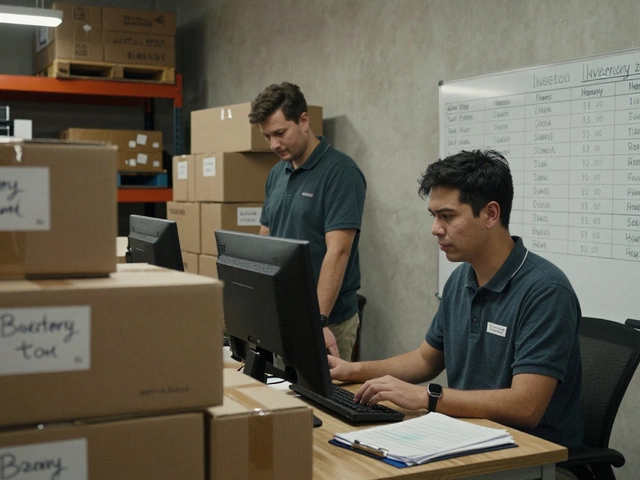Stress Management in Logistics: Real‑World Tips for a Smoother Workday
Working in logistics feels like juggling a million packages while the clock keeps ticking. Tight deadlines, unexpected delays, and heavy loads can turn a regular shift into a stressful marathon. If you’ve ever felt your heart race when a truck breaks down or a delivery slips, you’re not alone. Managing that pressure isn’t about magic tricks – it’s about simple habits that keep your mind clear and your team productive.
Why Stress Pops Up in the Supply Chain
First, understand what fuels the stress. In logistics, time is money, so every minute of downtime feels costly. Weather storms, traffic jams, and last‑minute order changes throw a wrench into even the best‑planned routes. Add to that the physical strain of loading pallets, the responsibility of keeping goods safe, and the pressure of meeting client expectations. All these factors pile up, making anxiety a common side‑effect.
Another hidden driver is information overload. Modern warehouses run on dashboards, scanners, and real‑time updates. When one system glitches, it creates a chain reaction – you scramble to fix it while still tracking dozens of orders. That constant need to stay “on” can wear anyone down, especially if you don’t have a clear way to prioritize tasks.
Practical Ways to Cut the Stress
Start with a quick “reset” at the beginning of each shift. Take five minutes to list the top three priorities, then block out time for them. Having a short, visible plan reduces the feeling of chaos and gives you a roadmap to follow.
Next, use micro‑breaks. A 30‑second stretch, a sip of water, or a glance out the window can reset your nervous system. It sounds tiny, but those moments add up and keep fatigue at bay.
Lean on technology, but don’t let it own you. Set alerts for critical milestones and mute non‑essential notifications. This way you stay informed about the real emergencies without getting distracted by every minor update.
Team communication is a lifesaver. A quick huddle every hour to share roadblocks helps everyone adjust plans before a problem spirals. It also builds a sense of shared responsibility, which lowers individual pressure.
Physical health matters too. Keep a water bottle at your station, snack on protein‑rich foods, and move whenever you can. When your body feels good, your mind handles stress better.
If you notice tension building, label it. Saying “I’m feeling stressed about this delivery” out loud (or to a teammate) stops the feeling from slipping into the background. Acknowledgment makes it easier to tackle the root cause.
Finally, celebrate small wins. When a truck arrives on time or a shipment clears customs without a hitch, give yourself a pat on the back. Recognizing progress, even in tiny steps, rewires your brain to focus on positives rather than constant stress.
Stress in logistics isn’t going away overnight, but with these everyday actions you can keep it in check. Try one tip this week, see how it feels, then add another. Your health, your team, and your customers will thank you.
January 31, 2025
Evelyn Wescott
0 Comments
Working in logistics can often be stressful due to tight deadlines, complex coordination, and unexpected disruptions. Logistics roles require adaptability and problem-solving, making stress management crucial. However, structured management practices and supportive environments can significantly alleviate tension. Knowing how to navigate and manage these challenges can lead to a rewarding and successful career in the logistics field.




